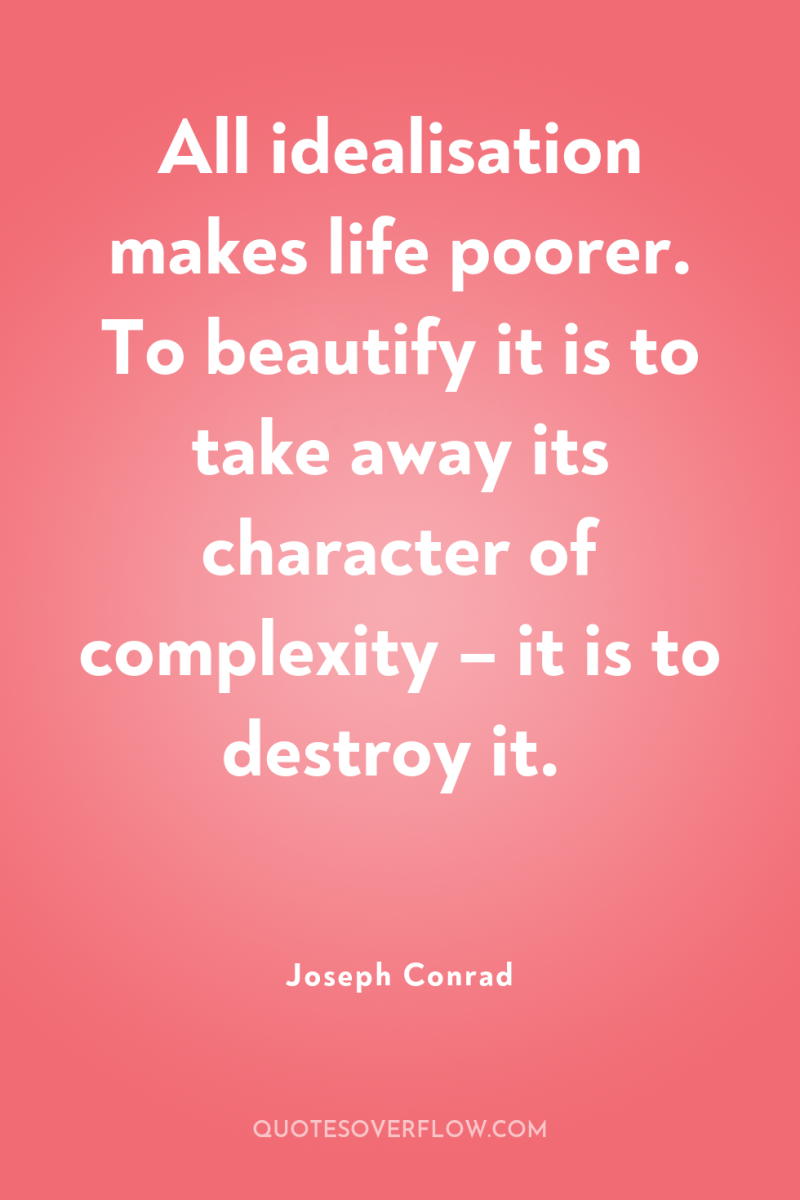
1
All idealisation makes life poorer. To beautify it is to take away its character of complexity – it is to destroy it.Joseph Conrad
2
No man engaged in a work he does not like can preserve many saving illusionsabout himself. The distaste, the absence of glamour, extend from the occupation to the personality. It is only when ourappointed activities seem by a lucky accident to obey the particular earnestness of our temperament that we can taste the comfort of complete self-deception.Joseph Conrad
3
There too he had been treated with revolting injustice. His struggles, his privations, his hard work to raise himself in the social scale, hadfilled him with such an exalted conviction of his merits that it was extremely difficult for the world to treat him with justice– the standard of that notion depending so much upon the patience of the individual. The Professor had genius, but lacked the great social virtue of resignation.Joseph Conrad
4
As a general rule, a reputation is built on manner as much as on achievement.Joseph Conrad
5
Preparation for the future was necessary, and he was willing to admit that the great change would perhaps come in the upheaval of a revolution. But he argued that revolutionary propaganda was a delicate work of high conscience. It was the education of the masters of the world. It should be as careful as the education given to kings.Joseph Conrad
6
A certain simplicity of thought is common to serene souls at both ends of the social scale.Joseph Conrad
7
You revolutionists' the other continued, with leisurely self-confidence, 'are the slaves of the social convention, which is afraid of you; slaves of it as much as the very police that stands up in the defence of that convention. Clearly you are, since you want to revolutionize it. It governs your action, too, and thus neither your thought nor your action can ever be conclusive. (..) 'You are not a bit better than the forces arrayed against you -- than the police, for instance. The other day I came suddenly upon Chief Inspector Heat at the corner of Tottenham Court Road. He looked at me very steadily. But I did not look at him. Why should I give him more than a glance ? He was thinking of many things -- of his superiors, of his reputation, of the law courts, of his salary, of newspapers -- of a hundred things. But I was thinking of my perfect detonator only. He meant nothing to me. He was as insignificant as -- I can't call to mind anything insignificant enough to compare him with -- except Karl Yundt perhaps. Like to like. The terrorist and the policeman both come from the same basket. Revolutions, legality -- counter moves in the same game; forms of idleness at bottom identical. He plays his little game -- so do you propagandists.Joseph Conrad